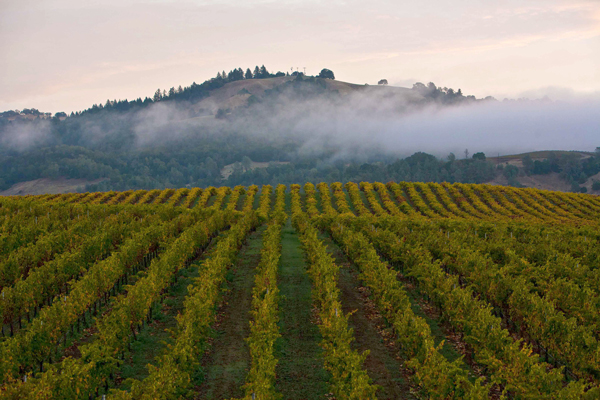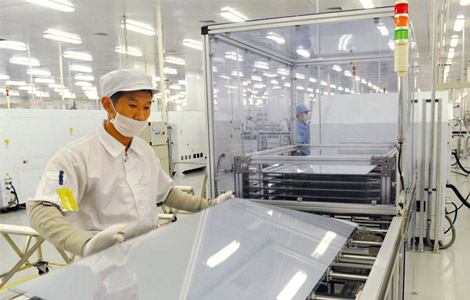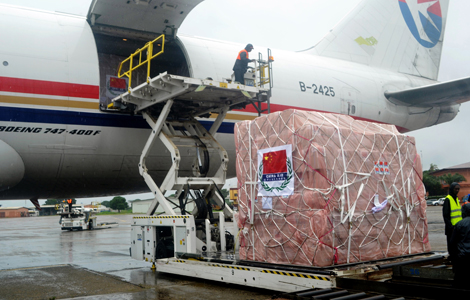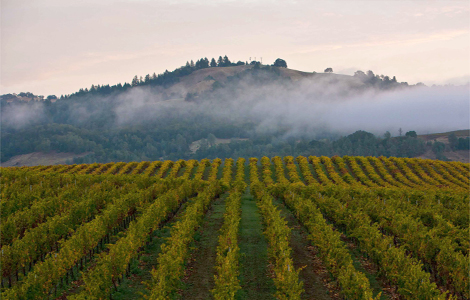China's Napa Valley bid ripe for growth
Updated: 2014-08-13 10:36
By Elizabeth Wu in New York(China Daily USA)
|
||||||||
More mainland investors are finding their way into wine country in California's Napa Valley, as the Chinese are not only buying bottles of wine, but also purchasing some vineyards as well, observers say.
"The Chinese market in Napa will explode in the next five years," predicted Charles Kimball, owner of Chinese Napa Tours, an exclusive tour service that offers mandarin language interpretation. "This is only the beginning of the influx."
Napa Valley, located north of San Francisco, is considered one of the premier wine regions in the world and according to Kimball, four vineyards in the area are owned by the Chinese.
|
 Vineyards in the California Valley. Provided to China Daily |
Guilliams Vineyards, known for making cabernet sauvignon, was purchased in the last six months, Sloan Estate was purchased a year ago, and Silenus Vintners was the first Napa Winery to be acquired by a Chinese-American company, Silenus International Group, back in 2010.
Kimball said Kien Choang, a Vietnamese conglomerate, purchased winery facilities and 13 acres of land from the Michael Mondavi Estate. This vineyard now exports all its wine to the Asia market. Quixote Vineyard, famous for making petite syrah, was sold to a Chinese company for $20 million in the last six weeks; it was the company's second winery purchase.
Former NBA basketball player Yao Ming bought a vineyard in Napa Valley in 2011 and started Yao Family Wines.
Recently, a cooperative of wineries in southwest France called Vinovalie, said they are producing wines that are tailored to the Chinese palette, according to CCTV. In California, winemakers are doing the same.
"In California we produce wines for a global palette and also for the European palette which is more constrained." said Linsey Gallagher, vice-president of international marketing at the Wine Institute based in San Francisco. "The Chinese prefer that their wine is fruitier with flavors," she said.
Flavors of ripe fruit, candied fruit with smells of violets are attractive to Chinese wine drinkers.
"There is a lot of opportunity in the China market for Californian wines," said Gallagher, noting that the microclimate and soil in California are ideal for making certain types of wine.
Wine exports from California to China have increased by over 300 percent in the last five years, reaching $70 million in 2013, according to Gallagher.
"A California wine such as zinfandel goes great with Western food and also traditional Chinese food. It does very well in China as it is food friendly with light hints of sweetness," said Gallagher, who has traveled to China several times, attended the Hong Kong Vinexpo, and participated in trade missions to Beijing, Shanghai and Guangzhou.
Chinese traditionally have preferred red wine, such as a cabernet sauvignon which Gallagher described as a bigger and bolder wine.
"Many Chinese know California as an iconic destination, but not a lot of people know about it as a destination for wine." said Gallagher.
California wines produced in Napa, Sonoma, and the Central Valley are exported to 125 countries worldwide.
Scott Carney, dean of wine studies at the International Culinary Center in New York, said: "...there have been French wines produced for the American market to suit the regional preferences".
Carney said Americans are partial to a sweeter and fruitier style of wine, (also favored by the Chinese) whereas the French appreciate fruit, but also the other dimensions of a wine's flavor and the sense of "terroir" (sense of place or a set of special characteristics that thegeography,geologyandclimateof a certain place, interacting with plant genetics expressed in wine) being of great importance.
Corentin Chon, brand ambassador at Fruit of the Vines Inc, said some wines are produced to fit a certain market.
For example, in a young market such as China, customers prefer wine that has more sugar and thus is easier to drink.
For China Daily
(China Daily USA 08/13/2014 page3)
Most Viewed
Editor's Picks

|

|

|

|

|

|
Today's Top News
US pork halted, additives feared
Kerry says Asia pivot is still on
Zhenfa to buy 51% stake in US firm
More Chinese attracted to world's white wildernesses
Brazil presidential candidate Campos killed in plane crash
US Marine deployment raises brows
China, global markets spur Priceline deal
More than 1,000 auto firms probed
US Weekly

|

|















